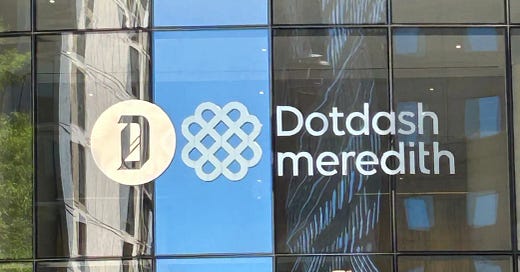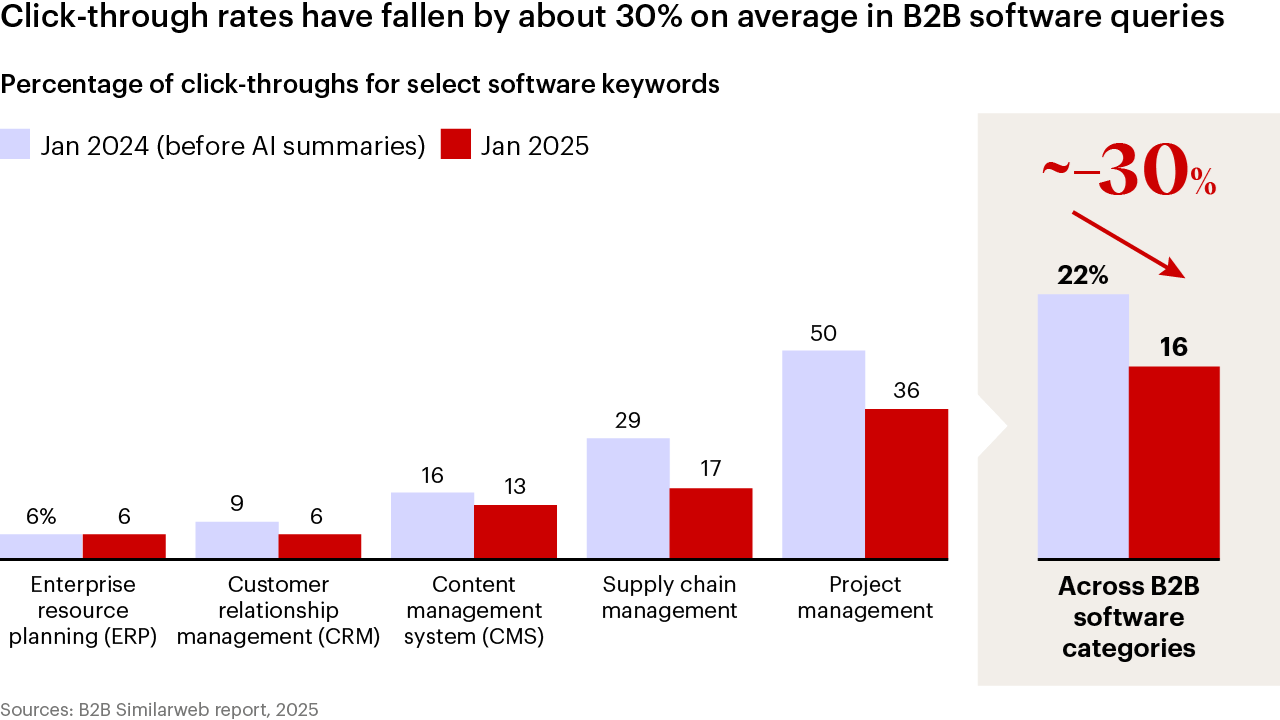How Dotdash Meredith Uses AI to Crack the Code of Contextual Advertising
Welcome to this week’s edition of Agentic Marketing—your weekly dose of insights, trends, and real-world applications in AI-powered marketing.
Instagram introduces AI tools to streamline creator discovery, offering personalized recommendations and improved search filters for targeted campaigns. Partnership ads now integrate creator content, boosting engagement and sales through data-driven collaborations. [Influencer Marketing Hub]
Spotify launches AI ads, programmatic platform
Spotify introduced AI-generated ad scripts and voiceovers for marketers, alongside its new programmatic ad exchange (SAX), enabling real-time bidding across audio/video formats.
Partnerships with Google, Magnite, and others aim to target Gen Z users globally, emphasizing measurement and addressability. [TechCrunch]
Papa Johns partners with Google for AI-driven optimization
The pizza chain partners with Google Cloud to leverage AI tools like BigQuery and Vertex AI, enabling proactive order suggestions, hyper-personalized loyalty rewards, and optimized operations through predictive analytics and automation. [MediaPost]
WPP, Heineken Expand AI-Driven Marketing Partnership
WPP deepens collaboration with Heineken, leveraging its AI platform WPP Open to optimize shopper-marketing efficiency. The deal focuses on below-the-line campaigns, reflecting WPP's strategy to regain market share through tech-driven pitches amid industry disruption. [Wall Street Journal]
In the Spotlight
Imagine serving hyper-relevant ads without relying on personal data, cookies, or invasive tracking. Dotdash Meredith cracked this code with Decipher—an AI tool that predicts purchase intent by analyzing what users read and how they engage.
In a world where privacy laws are tightening and third-party cookies are crumbling, this case study isn’t just innovative—it’s a blueprint for the future of marketing. [Digiday]
Context Is the New Cookie
Traditional contextual targeting stops at keywords ("travel" = hotel ads). Decipher goes deeper, inferring user mindset (e.g., "family vacation planning" → Nintendo Switch ads for long flights).
It's not guessing who the user is—it's predicting what they want next based on their behavior. It’s like reading their mind, ethically.
How It Works:
Tool: Decipher, powered by OpenAI’s GPT.
Input: 10B+ first-party behavioral signals (dwell time, scroll depth, content context).
Output: Intent-based ad targeting (e.g., a parent reading "child development" articles → high intent for snack brands).
Why This Matters
Privacy-First Is Non-Negotiable
With cookie deprecation and regulations tightening, tools like Decipher prove you don’t need personal data to be relevant.
Intent > Identity
Demographics are lazy proxies. The future belongs to AI that predicts what users want in real-time.
Closed-Loop Ecosystems Win
Content + AI + purchase data = unbeatable attribution. Dotdash Meredith’s Amazon integration is a masterclass.
Based on the Dotdash Meredith case, we recommend:
Leverage LLMs for semantic connections – Use AI (like OpenAI) to map contextual intent beyond keywords (e.g., linking "Polish pigeons" to "stuffed cabbage" recipes despite differing terminology).
Scale first-party content networks – Merge datasets across acquired properties (as Meredith did) to uncover more contextual ad opportunities.
Combine AI with human oversight – Maintain editorial review to guide LLM outputs, ensuring accurate intent targeting (e.g., validating food culture nuances)."
Sponsored by Harpa AI
Harpa AI turns every marketer into an AI-augmented growth agent—faster execution, sharper strategy, and scalable impact.
SEO & Content – Find top keywords, create ranking articles
Audience Targeting – Refine personas, launch precise campaigns
Ad & Social Copy – Generate high-converting ads, posts, emails
Repurposing – Turn videos/podcasts into blogs, threads, scripts
AI Insights – Get real-time intelligence, strategy tips
👉 Ready to market smarter? Learn more now.
Trends to Watch
At NAB Show 2025 (April 5-9, Las Vegas), NVIDIA will unveil how its real-time AI technologies are transforming media workflows and content creation. [Nvidia]
How AI Delivers True 1:1 Retail Marketing
Retailers struggle with irrelevant ads (40%) and rising ad costs, while consumers demand tailored experiences. AI-powered solutions enable hyper-personalization through real-time data analysis, dynamic content generation, and customer-centric decision engines, boosting ad returns by 10%-25%. [Bain & Company]
The AI Revolution in Hotel Marketing
GenAI is transforming hotel marketing by replacing traditional search listings with single-answer recommendations, prioritizing structured data over visual content. To compete, hotels must optimize machine-readable property details and ensure operational excellence meets AI's high standards. [Hospitality Net]
Quotes
In an era where AI is churning out content at scale, the real challenge for marketers isn’t generating more – it’s ensuring what they produce actually matters.
Marketing guru Seth Godin warned CMOs at WFA's Global Marketer Week (2025) that in the AI-driven content overload era, their core mission isn't volume but relevance—urging them to own all customer touchpoints beyond traditional ads to build meaningful brand impact. [The Drum]
30%
Bain & Company revealed in March 2025 that B2B software click-through rates dropped 30% post-Google's AI summaries, signaling marketers' declining influence on buyer decisions as zero-click searches become mainstream. [Bain]
Fresh Finds
Here are this week's updates on marketing tools or services.
1. AI marketing agent transforms commerce media Skai's Celeste AI unifies retail data and GenAI to optimize ad spend, boost efficiency by 5-15%, and replace manual analysis with automated insights. [Yahoo Finance]
2. AI-powered SEO platform enhances search marketing BrandPilot AI's new tool automates organic search optimization, complementing paid SEM with AI-driven insights for visibility and traffic. [Newsfile]





